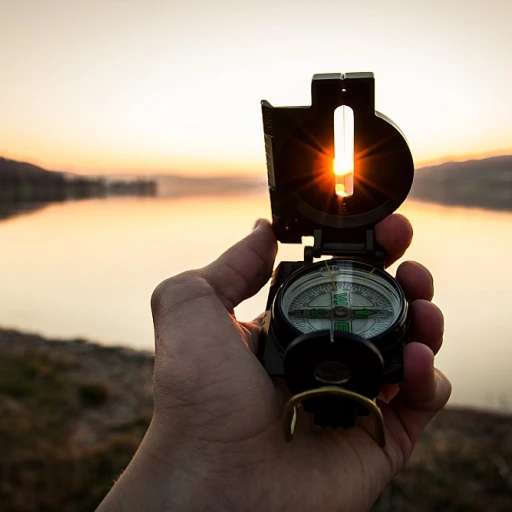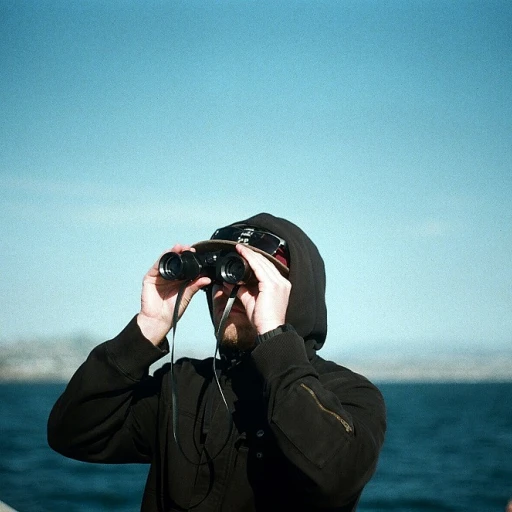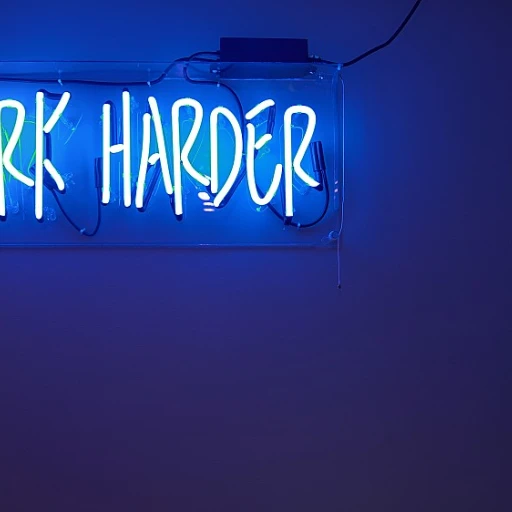
Understanding the Remote Game Development Landscape
Evolving Work Environment in Game Development
The remote game development landscape is dynamic and evolving, adapting to technological advancements and changing work cultures. Developers now have the ability to work from anywhere, whether it be the bustling streets of San Francisco or the quieter environments of Los Angeles. This flexibility opens up opportunities for both senior developers and budding enthusiasts.
In this realm, roles are varied. Apart from the classic game developer positions, there are specialized roles like game designer, software engineer, and unity developer. Many of these professionals, whether a senior game artist or a junior technical specialist, can thrive in a remote game setup by utilizing their expertise regardless of their location.
Shaping a New Workforce
Remote game development has enabled a more globally diverse workforce. Developers from the United States and beyond can now contribute to projects that were previously geographically limited. Culturally rich and diversified teams bring unique perspectives, powering creative outputs in game production.
With platforms like Unreal Engine and Unity playing central roles, remote game development allows developers to collaborate seamlessly across time zones. Whether it’s a game producer coordinating with a localization specialist or a designer brainstorming with an engineer, the interconnected nature marries innovation with efficiency.
Adapting to the Digital Workspace
Embracing a remote lifestyle means adapting to new norms. While the concept of working flexible hours sounds appealing, professionals need to navigate certain challenges, discussed further. Despite these challenges, remote roles offer an avenue for those willing to cultivate necessary skills in remote game development. Understanding the intricacies of remote work technologies becomes essential for seamless operations.
Skills Required for Remote Game Developer Roles
Mastering Key Skills for a Game Developer in Remote Roles
Navigating the landscape of remote game development necessitates a robust skill set, worth mastering if you aim to thrive in this evolving environment. The capabilities required are a dynamic blend of technical prowess, creative insight, and soft skills that have increasingly become critical. Consider these core competencies:- Technical Skills: Expertise in game engines such as Unity and Unreal Engine is indispensable for a remote developer. Mastery over these platforms allows efficient creation and optimization of game elements, making your contributions seamless and impactful.
- Software Proficiency: Familiarity with various software tools is crucial, particularly when collaborating with teams across the globe. A solid grasp of version control systems like Git, collaboration platforms, and cloud-based solutions expands your capability to work remotely effectively.
- Creative Abilities: For a game designer or artist, creativity is at the heart of game creation. Developing unique concepts and executing them distinctly can set you apart. The ability to adapt your creative processes to accommodate feedback from united teams is essential.
- Communication Skills: Remote work emphasizes clear and consistent communication. Being able to collaborate across different time zones, disseminate information accurately, and integrate community feedback is necessary for a streamlined production process.
- Time Management: As a remote game developer, you have the autonomy to set your hours, yet managing time efficiently is crucial. Balancing multiple priorities while sustaining productivity requires discipline and organization.
- Project Management: Roles like game producer and manager require strong leadership and organizational abilities. Overseeing project timelines and ensuring cohesive deployment of resources are vital for achieving project goals swiftly.
Challenges Faced by Remote Game Developers
Overcoming Common Hurdles
Remote game developers face a unique set of challenges distinct from other industries. Communication barriers can be a significant hurdle, as real-time collaboration is often essential in game development. Ensuring effective communication among game producers, software engineers, and unity developers can be difficult when team members are scattered across different time zones, from Los Angeles to the United States' east coast. Working against the clock. Time management issues can arise when balancing work hours with daily life. Unlike traditional workplace settings, a remote environment demands strict self-discipline to ensure tasks are completed on schedule. This could mean coordinating between a senior game designer, a lead game artist, and a technical manager, often juggling between different projects simultaneously. Another challenge is the technical constraints related to the software and tools used. Whether working with the Unreal Engine or Unity, remote game developers need to ensure their hardware and software infrastructure is up to date and compatible, which can be demanding. A senior unity developer might struggle with hardware that no longer supports the latest game software, causing delays. Privacy concerns must also be addressed, especially when handling sensitive data or proprietary game designs. Remote workers, including localization specialists and remote game developers, are expected to adhere to stringent privacy policies and user agreements. For resources on how to manage secure file sharing and data protection, reading about keeping files safe can be beneficial. Despite these challenges, staying informed and adaptable can lead to a rewarding and successful remote game development career. With the right tools and mindset, these hurdles can be transformed into stepping stones.Tools and Technologies for Remote Game Development
Key Tools for Seamless Remote Game Development
Remote game development relies heavily on robust tools and technologies to ensure efficient collaboration and high-quality outcomes. Whether you're a senior game developer, game designer, or unity developer, understanding and utilizing these tools is crucial.- Version Control Systems: Tools like Git are indispensable for collaboration and keeping track of changes across a dispersed team. They help manage code changes, ensuring that everyone, from a game artist to a software engineer, is on the same page.
- Game Engines: Unity and Unreal Engine are popular choices, offering comprehensive features for creating interactive environments. As a unity developer or technical artist, knowing these platforms inside and out can significantly improve your workflow.
- Communication Platforms: Efficient communication is the backbone of remote work. Platforms like Slack, Microsoft Teams, and Zoom bridge the gap across different time zones, be it the vibrant tech hub of San Francisco or the bustling city of Los Angeles.
- Project Management Tools: Tools like Trello, Asana, and Jira are vital for tracking progress, assigning tasks, and ensuring deadlines are met. As a game producer or manager, these tools enable you to maintain oversight over the entire project lifecycle.
- Design and Prototyping Software: Software such as Adobe Creative Suite and Figma empower game artists to create visual components. These tools are essential for turning concepts into reality.
- Remote Access and Security: Ensuring privacy policy compliance and protecting intellectual property is critical. Using virtual private networks (VPNs) and secure cloud storage solutions can help safeguard data.
Building a Successful Remote Game Development Career
Fostering Growth and Advancement
Building a successful career in remote game development necessitates dedication and continuous skill enhancement. Whether you are an aspiring game designer or a senior game developer, mastering tools like Unity and Unreal Engine can significantly boost your expertise and appeal in the market. It's essential to stay updated with the latest advancements in game software and trends that emerged merely hours ago.Navigating Remote Dynamics
Understanding the dynamics of remote teamwork plays a crucial role too. Being an effective communicator with your team, comprising a unity developer, game producer, and localization specialist, is vital. Time management becomes paramount, ensuring you deliver quality work within the stipulated hours as a remote worker. With team members spread across locations like los angeles or the united states, adaptability in working remotely becomes essential.Embracing Technical Roles and Leadership
For those seeking to advance to positions such as a lead or senior game engineer, gaining experience in managerial tasks alongside technical proficiency can be advantageous. Being an effective game producer means balancing creative input with managerial oversight, all in a remote setting. Developing these dual abilities can pave the way for advancement opportunities, such as an ago lead or technical producer role.Networking and Continuous Learning
Networking with other professionals in remote games can open new avenues for opportunities. Engaging in online forums, attending virtual conferences or workshops, and keeping abreast with industry news helps maintain a competitive edge. Furthermore, continuously learning and evolving professionally can fortify your position, whether as a specialist, manager, or even an artist in the diverse landscape of remote game development.Balancing Work and Life as a Remote Game Developer
Harmony Between Professional and Personal Domains
Achieving a harmonious balance between work and life as a remote game developer can be challenging, especially when dealing with the lure of constant availability. However, mastering this balance is crucial to maintaining both productivity and personal well-being.
Firstly, setting clear boundaries is essential. It's important to designate specific hours for work and personal time. For instance, establishing a consistent schedule that mirrors the typical working hours can help create structure in the absence of a physical office environment. This is vital for roles such as a senior game developer or a software engineer in fast-paced regions like the United States and cities like San Francisco or Los Angeles.
Using appropriate tools and technology plays a part in ensuring an efficient remote work rhythm. For roles such as a unity developer or game designer, leveraging specialized software can streamline tasks and minimize overworking. This approach aligns with the essential technical skills discussed prior, ensuring that creativity flows without compromising personal time.
Communication remains key. Regular check-ins with team members and managers can clear up misunderstandings about availability and expected outputs, creating a transparent relationship consistent with the expectations surrounding remote collaboration as a game producer or technical lead.
Moreover, fostering a supportive environment is crucial for a remote team. Acknowledging the unique challenges faced by each team member, whether they are localization specialists or game artists, boosts morale and reduces stress levels, fostering a more cohesive and supportive atmosphere.
Finally, finding time for personal growth outside of work hours enhances life balance. Pursuing hobbies or spending time with family rejuvenates the mind, a principle that equally applies to those in a senior technical specialist or producer role. A united team makes room for both professional excellence and personal satisfaction.













